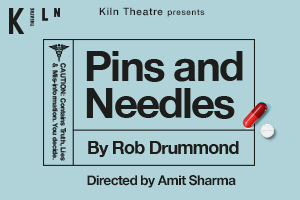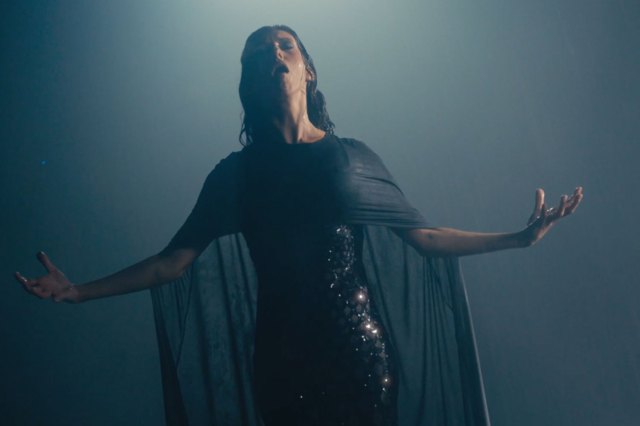Pins and Needles at the Kiln Theatre – review
New artistic director Amit Sharma helms the world premiere piece by Rob Drummond, which runs until 26 October

Although described as a play, Rob Drummond’s Pins and Needles, the inaugural production of Amit Sharma’s tenure as artistic director of the Kiln, is more theatrical lecture than real drama, although it’s not really all that theatrical. Certainly the subject matter – the pros, cons, human fallout and financial implications of vaccines – is timely and controversial, but Drummond seems more interested in presenting viewpoints than sparking debate.
Initially, Pins and Needles has the trappings of a verbatim piece with playwright Rob (played with a nice line in affable neutrality by Gavi Singh Chera) coming onstage ahead of the dimming of the house lights, to chummily address the audience before introducing a trio of interviewees, each with a definite take on vaccination due to their personal experiences. When the second participant turns out to be 17th-century inoculation pioneer Edward Jenner, it’s clear that the regular playmaking rulebook has been ripped up (obviously Drummond couldn’t conduct an actual interview with somebody who died in 1823), an impression further reinforced by a final ambiguity in Rob’s retelling of a crucial part of his own family history.
So, it’s a show that interrogates verbatim theatre as a form, as much as an examination of attitudes to a divisive, incendiary subject. Sharma’s production keeps the emotional temperature cool so that when stakes get raised or sudden outbursts occur, such as from Brian Vernel’s aggrieved, volatile anti-vaxxer, or when Vivienne Acheampong’s deceived mother recounts the horrific way she dealt with the realisation that her mistake so drastically impacted on the life of her child, they hit with genuine force.
There are few real revelations though, unless you’ve never read the papers or been online, apart from a fascinating suggestion that the greed of Big Pharma these days is little different to that of senior physicians in Jenner’s time. Elsewhere, the scarcity of dramatic conflict (having the author as conciliatory conduit for the contrasting opinions of a selection of diverse characters is good in theory but has an oddly deadening effect in practice) and the overall lowkey tone makes one wonder if this whole project wouldn’t work just as well on the page as on the stage.
Rory Beaton’s soporifically dim lighting, Jasmine Kent Rodgman’s dreamlike soundscape and a skeletal set by Frankie Bradshaw that simultaneously evokes a children’s playground, a laboratory and the human circulatory system, don’t help to make the show feel any more immediate or vital.
Mercifully, Drummond leavens the 80-minute piece with some well-judged humour: Acheampong’s Mary wants Helen Mirren to play her (“I know she’s not Black but I don’t care, I love her”). Richard Cant sparkles as a dandyish Jenner, yet also finds wry but potent weight in his concluding oration warning of the dangers of pandering to extremists (“the only person you should truly trust is the person who admits freely, they do not know”). By contrast, Vernel conveys an unsettling intensity as a young man who can forgive neither himself nor the system for his mother’s post-Covid jab death, and Chera is moving as he recalls the demise of Drummond’s unvaccinated mother.
There is a meaty, riveting play to be made about this most emotive of subjects, but this isn’t it. What Drummond and Sharma give us instead is a stylish, intelligent, politically charged piece of theatre, but one that only intermittently catches dramatic fire.
















